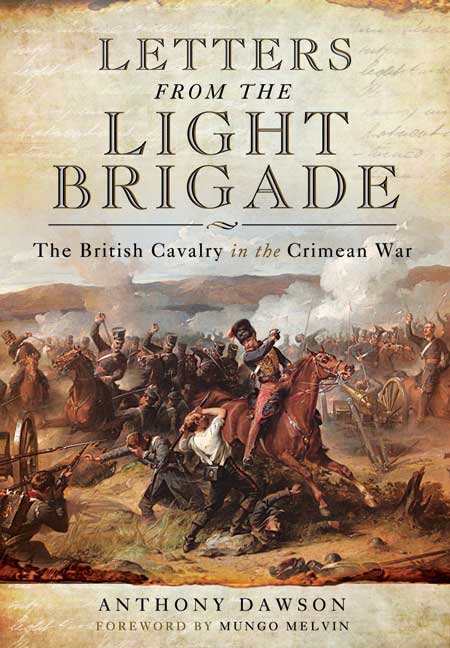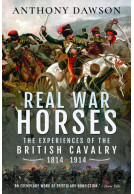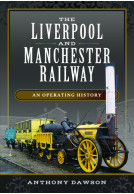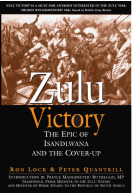The Railway that Helped win the Crimean War (Hardback)
The Story of the Grand Crimean Central Railway

Pages: 272
Illustrations: 90 black and white illustrations
ISBN: 9781526775559
Published: 15th July 2022
(click here for international delivery rates)
Order within the next 5 hours, 38 minutes to get your order processed the next working day!
Need a currency converter? Check XE.com for live rates
| Other formats available - Buy the Hardback and get the eBook for £1.99! | Price |
|---|---|
| The Railway that Helped win the… ePub (83.1 MB) Add to Basket | £6.99 |
Week after week, the guns of the British expeditionary force battered away at the defences of Sevastopol, eight miles away from Balaklava, the port through which all besiegers’ supplies arrived. As autumn turned to winter, rain and frost turned the track from Balaklava into a muddy quagmire and soon it became virtually impassable.
Horses were dying daily in their endeavours to pull carts up the hills to the siege lines, and with few supplies reaching the front, the troops suffered terribly from malnutrition and frostbite. Unless a solution could be found, the entire operation was doomed to humiliating, disastrous failure.
When news of the terrible plight of the troops reached the UK, a leading railway contractor and his partners undertook to build a railway at cost from Balaklava to the front line – and promised that they could construct it in just three weeks after they arrived in the Crimea. Though it took almost seven weeks to complete the railway, in that time a double track which rose 500 feet from the port and travelled for seven miles to the siege lines had been laid.
With food, clothing and ammunition at last able to reach the front, the British along with their French allies were able to capture Sevastopol and bring the Crimean War to an end.
In this comprehensive and detailed account of the construction and use of what became known as the Grand Crimean Central Railway the author describes the astonishing achievement in building the first railway ever employed in warfare, and the first to be used for casualty evacuation, thousands of miles from the UK.
"This, the first true military railway, was a learning curve and the advantages and disadvantages are summed up in the final chapter. Anyone who has read Brian Cooke’s book should find this to be a more comprehensive reference work."
Industrial Railway Society Bulletin 1119, January 2024
4.9 out of 5
Rail Advert
The level of detail in the book shows that the author has done a huge amount of research, exemplified by the nearly-30 pages of notes and bibliography
Read the Full Review Here
Recommended as surely the fullest modern review of its subject and related matters.
Railway and Canal Historical Society
There is a lot of information here, presented in a way that’s easy to read and understand. Whether you’re interested in logistics, transport, social history or the development of the Army, or even a comparison of the British Army with the French Army of the time, this is well worth a read.
Army Rumour Service (ARRSE)
4 out of 5
Read the full review here
Review as featured in
Britain at War
Highlight: 'This title [is] interesting, engaging and jammed with copious detail. It is well worth catching this train.'
The Crimean War is old history these days. And yet if you look at some of the photos of wounded veterans in the Royal Collection Trust archive, some of those portraits look as though they could have been taken yesterday.
Amazon Customer, Paul Nixon
These days, the Crimea is probably better known - by those who care to interest themselves in such matters - as the seat of more recent Russian aggression, but this new book by Pen and Sword is a fascinating examination of that earlier campaign which lasted from October 1853 to February 1856. I had a vague knowledge of the main battles but I had no idea at all that a railway was constructed from Balaclava to the front line.
This book ticks all the boxes for me: well researched, well-illustrated, readable (not dry), with footnotes, an index and a bibliography. Well done, Anthony Dawson.
5 out of 5
About Anthony Dawson
Born in Wakefield in 1980, ANTHONY DAWSON gained a degree in archaeology from the University of Bradford before going on to be a Post Graduate Research Student at the University of Leeds, attaining an MA in History by Research. As well as being a lecturer in History and Archaeology at Salford City College, Anthony worked for the Museum of the Manchester. A member of the Crimean War Research Society, he is also the author of a number of books, including French Infantry of the Crimean War.
Letters from the Light Brigade The British Cavalry in the Crimean War (Hardback)
The Charge of the Light Brigade is one of the most famous, controversial and emotive small-scale actions in military history. Over the 160 years since the event, and since it was immortalized in Tennyson's poem, it has generated a stream of writing and debate. Yet, as this new book by Anthony Dawson shows, the subject is far from exhausted. His selection of previously unpublished letters and journal accounts of the two cavalry charges at the Battle of Balaklava is a notable addition to the literature on the Crimean War. It offers a direct insight into events on the battlefield as they were seen…
By Anthony DawsonClick here to buy both titles for £50.00





















